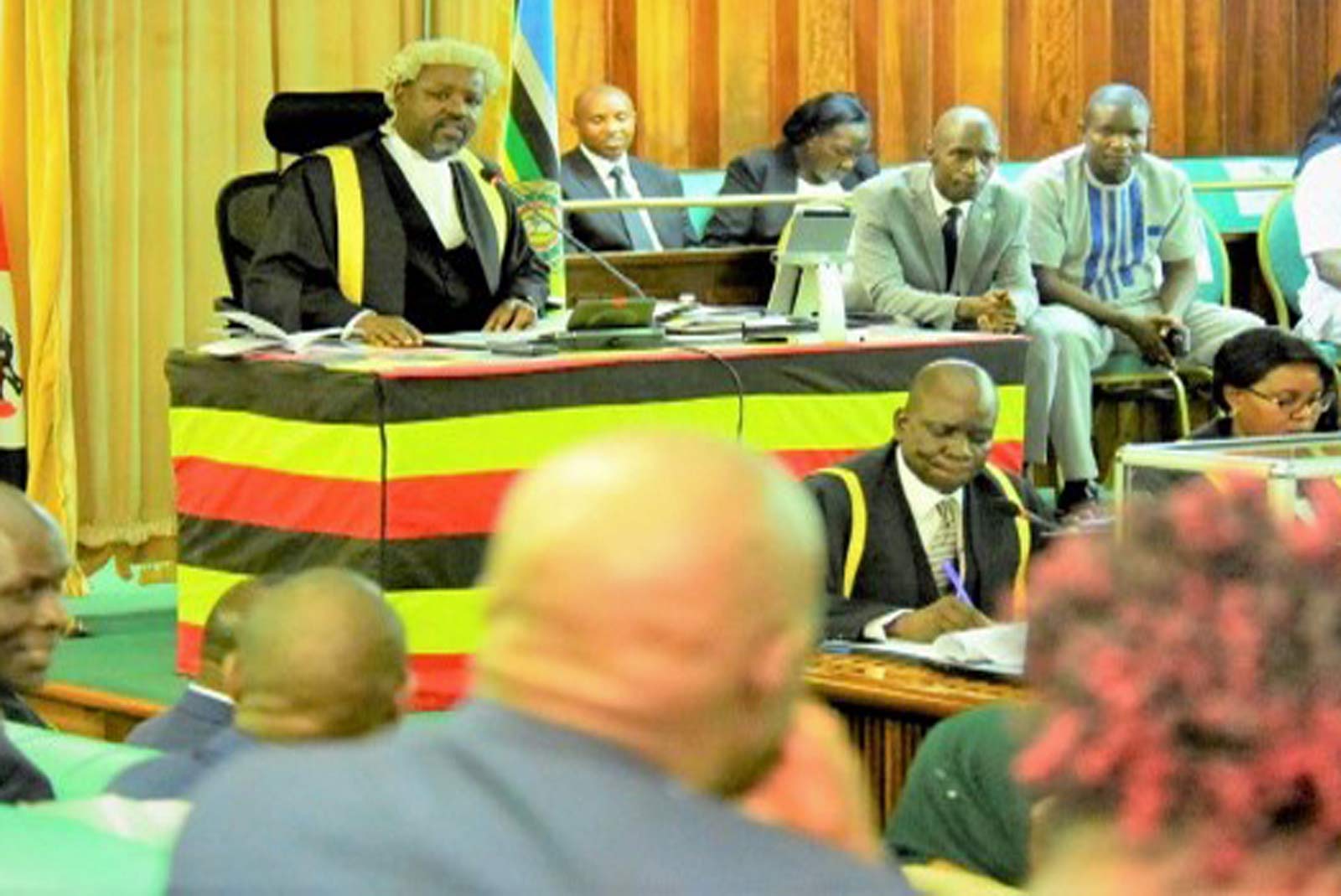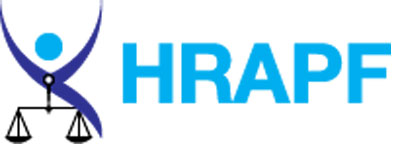The deputy speaker of Uganda’s Parliament has raised a homophobic challenge against a national policy aimed at protecting the nation’s LGBTQ community against HIV.

Deputy Speaker Thomas Tayebwa addresses Parliament on Jan. 25. (Photo courtesy of the Ugandan Parliament)
By Joto La Jiwe
African Human Rights Media Network
On Jan. 25, while chairing a Parliamentary session, the Deputy Speaker of the parliament of Uganda Thomas Tayebwa made remarks that appeared to contradict the government of Uganda’s official position in support of fighting HIV among the nation’s key populations most at risk of HIV infection, including the LGBTQ community.
His remarks were prompted by reports that Kasese Municipal Council (in South Western Uganda) is in the process of passing a by-law aimed at increasing access to HIV/TB prevention and care services for the municipality’s key populations.
Tayebwa criticized the Kasese Municipal Council for considering the proposal, which would recognize homosexuals and transgender people as minorities.
He suggested that the proposal was based on lobbying by the gay-friendly Human Rights Promotion Awareness Forum (HRAPF) .
“I have gotten information that the Council was being facilitated by an NGO called Human Rights Promotion Awareness Forum (HRAPF) and they are going around the whole country,” Tayebwa said. “Now they are using local governments. The motion was sponsored by [HRAPF] … and it was moving at a terrible speed… I want the Minister for Internal Affairs to take up this matter seriously with this NGO .”
He predicted that advocates of LGBTQ rights would respond harshly to his challenge: “Colleagues, this is not a fight for the faint hearted. They will target you and try to tarnish your name and threaten you that you will not get a visa.”
In addition, Hon. Sarah Opendi (NRM, Tororo District Woman MP) called for investigations into Key Populations Consortium Uganda Limited, an NGO working with government on behalf of key populations.
“The Ministry of Health has identified key populations that include the boda boda riders and fisher folk. These NGOs are being used to reach the grassroots to promote health but in the guise of promoting something else,” Opendi said, suggesting a sinister attempt at persuading Ugandans to drop their hostility to homosexuality.
Hon. Moses Okot (FDC, Kioga County) said that the Anti-Homosexuality Bill of 2014, which was overturned in court because it was passed without a quorum in Parliament, should be brought back.
“Why is it that this Parliament is not moving ahead to create the intended forum so that we bring the bill back to the House for enactment?” Okot asked.
Bukonjo County West MP, Hon. Atkins Katusabe, said that the anti-HIV bylaw did not reflect the will of the people.
“This by-law is not a position of the people of Kasese. Kasese is a highly religious district and we are law abiding citizens.. Katusabe said’
The State Minister for Local Government, Hon. Victoria Rusoke, said; “We should debate as Parliament to come up with something very reprimanding to deter this habit.”
Key populations is a term used by the government of Uganda to refer to people who are highly vulnerable to HIV and bear the highest burden of infection, yet they are hard to reach because of the stigma and discrimination they are subjected to.
These include men who have sex with men, transgender persons, sex workers, people who inject drugs, and people in prisons and other confined settings.
In Uganda, approximately 25 percent of new HIV infections are among members of these key populations and their partners.
It is estimated that key populations in Uganda total approximately 310,000 individuals. The percentage of people living with HIV among these populations is five times higher than in the general population.
In a statement issued in response to the homophobic remarks made by the deputy speaker and a handful of Members of Parliament, HRAPF stated:

Logo of HRAPF, the Human Rights Awareness and Promotion Forum
“HRAPF cannot be a ‘sponsor’ of a motion before Kasese Municipal Council (or any other Municipal Council) as it has no legal standing in this regard under the Laws of Uganda.
“HRAPF notes that it has been suggested that the proposed by-law may contravene the laws of Uganda. On this point we would want to respectfully disagree. The Constitution of the Republic of Uganda in Article 21(1) guarantees equality and nondiscrimination for all persons ‘before and under the law in all spheres of political, economic, social and cultural life and in every other respect,’ and guarantees equal protection of the law to all persons.
“As such, a proposed law that seeks equal access to HIV services for all persons, including key populations, cannot be said to be against the Constitution.
“Further, the proposed by-law is in line with Section 24 of the HIV and AIDS Prevention and Control Act, 2015 which enjoins the state to ensure the right of access to equitable distribution of health facilities, goods and services, including essential medicines, on a non-discriminatory basis, and to give priority to key populations.
“The National Strategic Plan (NSP) for HIV & AIDS 2020/21 – 2024/25 also recognizes key populations.
“Finally, the proposed by-law is in line with the Minister of Health’s June 2014 Ministerial Directive on Access to Health Services without Discrimination, whose purpose is ‘to reaffirm the government’s commitment to provision of health services based on the key principles of non-discrimination, privacy and confidentiality and to promote adherence to existing ethical and professional code(s) of conduct.’ It provides that ‘No health facility or health care provider shall discriminate patients on grounds of disease, religion, political affiliation, disability, race, sex, age, social status, sexual orientation, ethnicity, nationality, and country of birth or other such grounds.’
“Based on the above, we firmly believe that ensuring access to HIV services to key populations is not against the laws of Uganda, and neither is engaging local governments towards this end.”
The parliamentary discussion comes at a time when the LGBT community and human rights defenders are living in fear in Uganda following media reports of sexual abuse in schools by alleged gay teachers.
Some of those media reports can be found here:
• Teacher arrested: https://www.monitor.co.ug/uganda/news/national/rukungiri-teacher-arrested-over-sodomizing-student-16-4064038
• Homosexuality probe at school: https://www.independent.co.ug/namirembe-probe-homosexuality-claims-at-kings-college-budo/
• Uganda’s first lady urges investigation: https://www.monitor.co.ug/uganda/news/national/janet-orders-probe-into-improper-budo-conduct-4092724
• Bishop warns parents: https://www.monitor.co.ug/uganda/news/national/bishop-tells-parents-to-shun-gay-schools–4095210
Joto La Jiwe, the author of this article, is a Ugandan correspondent for the African Human Rights Media Network. He writes under a pseudonym. Contact him at [email protected].
Source: African Human Rights Media Network member Erasing 76 Crimes.
COMMENTS